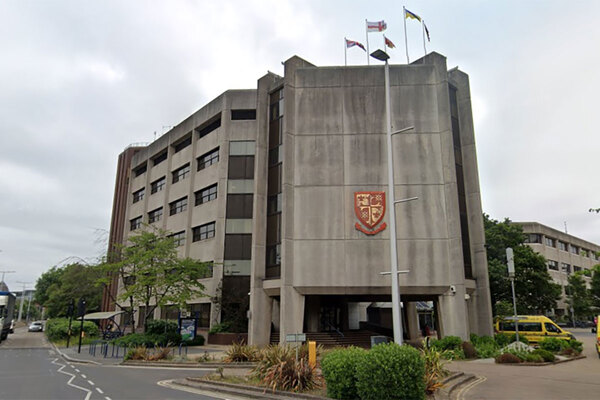Special ombudsman report finds ‘extensive failures’ and ‘collapse in trust’ at giant council landlord
One of England’s largest council landlords has been slammed for “weakness in policies, repeated failings and common points of service failure” which led to a “collapse in trust” with residents, in a special report by the Housing Ombudsman.
An investigation into the local authority, which covered complaints over a six-month period, found “weakness in policies, repeated failings and common points of service failure” that led the watchdog to conclude that its findings are indicative of wider failure in repairs, record-keeping, complaint-handling and compensation.
Housing ombudsman Richard Blakeway told Inside Housing that the maladministration rate was “unusually high” and said the council’s complaint system was “very defensive, adversarial, and lacked any type of acknowledgement that the landlord had done something wrong”.
The ombudsman in July launched a wider investigation into Birmingham City Council, which owns 62,000 council homes – making it one of the largest social landlords of any kind.
It followed a case that saw the council take four months to repair a “high volume” water leak.
The leak caused internal damage to a leaseholder’s property and also led to damp and mould.
The report said: “She also reported having to walk through water to access her house every day not knowing if it contained raw sewage with a terrible smell starting inside her property.
“Most concerning was her report of damp and mould appearing inside the property and her child developing coughs and respiratory issues.”
The case prompted the wider probe into Birmingham’s complaint-handling and compensation.
The investigation covered complaints made to the council that were brought to the ombudsman over a six-month period from 15 March 2022.
The watchdog identified 14 relevant cases, all of which concerned the council’s handling of repairs and the subsequent complaint and compensation process.
It made 25 findings across the cases and found maladministration in 24 of them, including five findings of severe maladministration.
Overall, the findings represented a maladministration rate of 96%.
Birmingham’s repairs service standards say that urgent repairs should be dealt with between one and seven working days, and routine repairs should be dealt with within 30 working days.
However, the ombudsman’s investigation found that the aims of the council’s repairs policy were not met in practice.
It found that 90% of its findings on repairs were upheld, with nine findings of maladministration and two findings of severe maladministration.
According to the report, residents had to make multiple attempts to get repairs resolved, often over a prolonged period of time.
It was also not clear how the council assigned categories of repair and considered resident vulnerability.
Once the council began a repair there was also “little checking of progress and resolution”.
Some residents faced living for years in homes that required repair, making repeated attempts to get the landlord and its contractors to act.
In one case the resident made repeated disrepair claims for more than 10 years.
The report said this approach led to a “collapse in trust” between residents and the council.
The ombudsman found that Birmingham had no framework in place for the record-keeping it expects of its staff and contractors.
It said this represented a “significant weakness” in the council’s approach and was the “cause of repeated service failure”.
In one case a resident made repeated repair requests for four years.
The council told the resident that its contractor had carried out repairs to the resident’s satisfaction, despite all evidence showing the repairs remained incomplete.
Mr Blakeway said that record-keeping is “fundamental” to getting repairs right.
He said that poor record-keeping, which the ombudsman’s next spotlight report will be on, is not unique to Birmingham.
He said: “I find very little resistance in the sector to the suggestion that record-keeping is not as strong as it needs to be.”
Mr Blakeway said that Birmingham’s approach to compensation stood out as particularly bad during the investigation.
At the time of the monitoring period, the policy did not allow for compensation to be paid for distress, inconvenience, time and trouble.
It also said it could not make payments where the landlord decided there was no liability, “which is entirely false”, according to the report.
Residents were often refused compensation and were signposted to the compensation policy or insurers when the issue should have been resolved through the complaints process.
Mr Blakeway said: “They won’t be the only landlords, but not accepting responsibility for failures and remedying in a reasonable way was really poor and really unfair on residents.
“The complaints process should be an opportunity to put things right and identify missed opportunities.
“But the role of the complaints process was very defensive, it was adversarial, and lacked any type of acknowledgement that the landlord had done something wrong.”
According to the report, while Birmingham has improved its complaints policy following orders from the ombudsman, “its approach still falls short of a fair and effective approach to compensation”, placing the onus on the resident to claim compensation.
In the 14 cases, the ombudsman ordered the council to pay more than £7,500 in compensation to residents.
The investigation also found maladministration for the way in which the landlord handled the complaint in 11 of the 14 cases.
In the past 12 months, the watchdog issued six complaint-handling failure orders against the landlord for unreasonable delays in its complaint process.
The investigation also found that there was limited learning from complaints, with the same issues repeated.
It found “extensive and reoccurring service failures” that need to be addressed by the council.
It also made several orders and recommendations to try to prevent the same problems happening again, including a repairs action plan and developing a framework for record-keeping.
The council made a series of changes following the investigation, outlined in its response below.
Mr Blakeway said that if the council is to imbed the recommendations, it needs “strong leadership, the right culture, and the right governance arrangements in place”.
He said: “It will take time, openness with residents, and really effective communication with residents.”
Birmingham City Council’s response
“Birmingham City Council is the largest local authority social housing landlord in England with over 60,000 homes and carries out over 250,000 repairs per year.
“Following the historical cases highlighted in the report, we have progressed in terms of improving the service for tenants and this will continue through our transformation programme and the new housing strategy.
“The findings of a recent independent review and the recommendations made by the Housing Ombudsman in the special report have been incorporated into a detailed action plan which focusses on addressing process inefficiencies in its response to repairs, record-keeping and complaint-handling.
“A new corporate complaints process was introduced in May 2021 which preceded the date of the cases included in the Paragraph 49 investigation.
“This included bringing in additional dedicated resources with the objective of delivering a consistently high standard of service, reducing delays and improving the quality of responses.
“As a result of performance issues, we terminated a failing repairs contractor in March 2022.
“We are working with our repairs contractors to develop process improvements which will help mitigate against future service failure.
“We welcome the opportunity to work with the Housing Ombudsman during the implementation of their recommendations and we are fully committed to delivering service improvements for the benefit of all Birmingham City Council tenants.”
Sign up for our Council Focus newsletter
Already have an account? Click here to manage your newsletters












